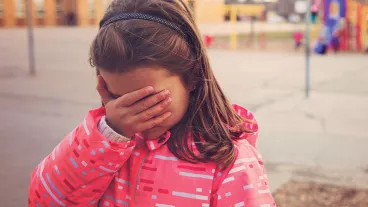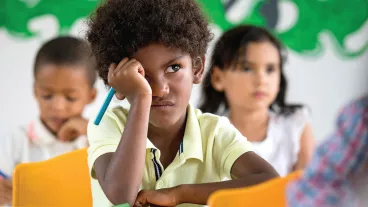Developmental differences in children who have experienced adversity
Contents
May 2018
Sara McLean
Emerging research suggests that childhood maltreatment may be related to four areas of developmental difference; which increase vulnerability to developing mental health and behavioural concerns.
This series of practice guides and accompanying webinar are intended for professionals (psychologists, mental-health social workers, therapeutic specialists) supporting vulnerable children and families who may have developmental differences.
These developmental differences include changes in the effectiveness of executive functioning and emotional regulation; and changes in the processing of social information related to social threat and social reward. Each guide addresses one of the developmental differences and provides suggestions for supporting children who are school age or older.
Practice guides
- Emotional dysregulation
The focus of this practitioner resource is emotional dysregulation; which we believe may put a child at increased risk of social and emotional difficulties over time. - Diminished social reward
The focus of this practitioner resource is diminished response to social reward; which we believe may put a child at increased risk of developing depression over time. - Difficulty with executive functioning
The focus of this practitioner resource is difficulty with executive functioning; which we believe may put a child at increased risk of learning and behavioural issues over time. - Threat bias
The focus of this practitioner resource is enhanced threat bias; which we believe may put a child at increased risk of developing an anxiety disorder over time.
Webinar
- Developmental differences in children who have experienced adversity: Emerging evidence and implications for practice
This webinar outlined emerging evidence on developmental differences in children that are linked to exposure to early adversity and toxic stress. A full recording of this webinar is available on our YouTube Channel. The audio, transcript and presentation slides are also available.
Dr Sara McLean is a Consultant Psychologist in Child Protection, and Adjunct Research Fellow, Australian Centre for Child Protection.
Featured image: istockphoto/romrodinka
Related publications

Emotional dysregulation in children who have experienced…
The focus of this resource is emotional dysregulation; which may put a child at increased risk of social and emotional…
Read more
Diminished social reward in children who have experienced…
This resource focuses on diminished response to social reward; which we believe may put a child at increased risk of…
Read more
Difficulty with executive functioning in children who have…
A resource on difficulty with executive functioning; which we believe may put a child at increased risk of learning and…
Read more